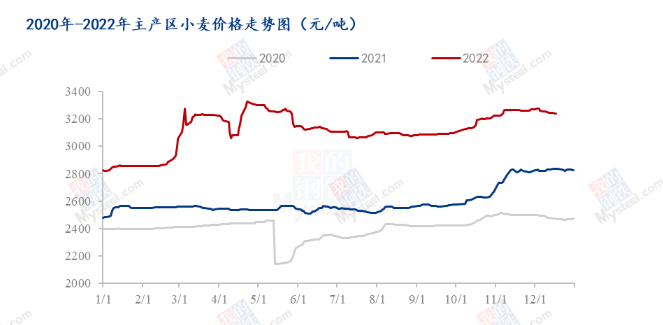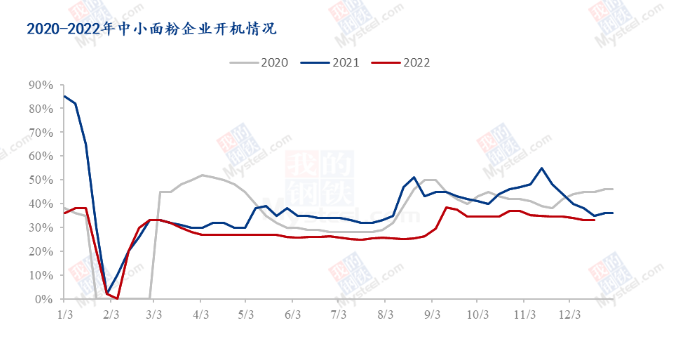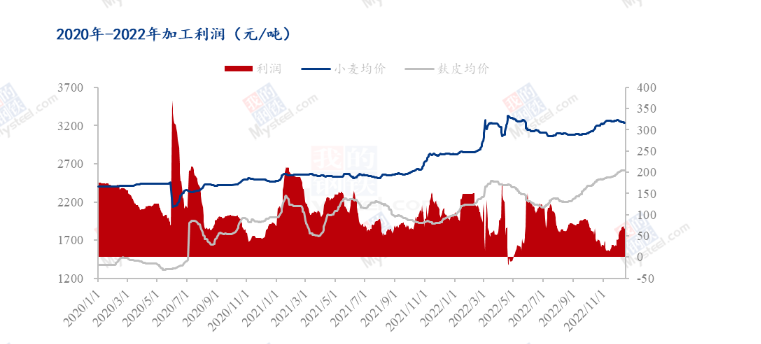

Can the wheat market rise again towards the end of the year
编辑:2023-04-15 10:46:50
After entering the fourth quarter of previous years, the wheat market as a whole showed a strong trend, with prices rising to annual highs from the end of December to early January. And this year, as the wheat market entered the fourth quarter, it fluctuated and fell instead of rising after entering December. At present, there is still one month left until the Spring Festival. Can the wheat market rise again.

The long-term fluctuations in the current wheat market are mainly caused by weak downstream demand. The startup of milling enterprises is sluggish, and the purchase quantity of wheat is limited. After meeting production demand, the willingness to continue purchasing raw grains at high prices is not strong, and the purchase price immediately drops. This year, due to price reasons, the downstream market of wheat has lost the competition of feed enterprises, and flour milling enterprises have increased their influence on the market price. Whether the future market of wheat can rise depends on the specific demand of flour milling enterprises.

Due to the impact of the epidemic, the demand for flour in the market has been very bleak this year. In previous years, the traditional peak season of the flour market was generally the fourth quarter. With the improvement of flour sales, the production and profits of flour mills will gradually recover. But at present, the peak season of the flour market is not prosperous, and the production of flour enterprises is slow. In order to avoid serious inventory backlog, the operating rate has always been at a low level. And due to poor sales, flour prices are also difficult to rise, resulting in long-term low profits for the enterprise. On the one hand, limited startup, and on the other hand, sluggish profits have weakened the willingness of flour mills to stock up on raw grains this year. Maintaining their own safety inventory is the main focus, and they will not, as in previous years, collect an additional portion of wheat to prevent market changes in the later stage. So the purchasing prices of milling enterprises have maintained a fluctuating trend for a long time, and they should raise prices appropriately when they close, and if they do not want to lower prices again when they close. However, as the Spring Festival approaches, there is still some driving force for flour production. At that time, flour mills will increase their production capacity and their willingness to harvest grain will also increase again.

At present, the panic sentiment among grain merchants is quite obvious. After multiple ups and downs in the wheat market, they gradually lose confidence in the future market. Most grain merchants want to run out of inventory at suitable prices before the year, or leave a small portion to bet on the market after the year. This also makes the current phenomenon of selling grain in clusters serious, and the supply of grain in the grassroots market is very sufficient.
The editor believes that the wheat market can once again recover its upward trend before the year. On the one hand, the current acquisition prices of milling enterprises are gradually falling to the cost line of surplus grain for grain merchants, and the reluctance of grain merchants to sell has once again tightened, resulting in a significant decrease in the volume of products sold in front of the enterprise. On the other hand, with the approach of New Year's Day and Spring Festival, it is expected that the opening of flour mills will rebound in the second half of this month. At that time, as the consumption of wheat increases, the purchase price will also be raised again to replenish raw grain inventory. However, the upward space is relatively limited, or around the previous high of 1.65 yuan/jin.




